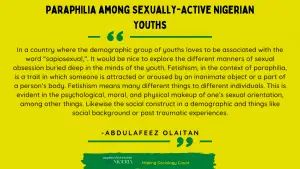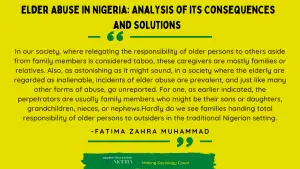The world is constantly changing with the archaic making room for the new. In terms of health, what was once considered an omen in the bygone days is now confirmed an ailment with a diagnosis, treatment, and cure. It is no different in the case of mental health and postpartum depression.
What Is Postpartum Depression?
Postpartum depression is a mental illness affecting women as early as 2 weeks after birth, which may last several weeks, depending on its severity.
This mental illness is a form of depression that sneaks in on women at the time of pregnancy or at the time they have put to bed and reality kicks in.
During this time, the new mother is overwhelmed by the realities of pregnancy and birth, which may be constant fatigue, sleeplessness, increasing anxiety, over-worrying, mood swings, etc.
Symptoms begin with a feeling of extreme fatigue and sleeplessness followed by an increasing feeling of inadequacy to take care of the baby.
There are stages to the illness and the most common one is the postpartum blues. This is where fatigue and crying spells are common and disappear within a month after giving birth.
However, some women may face more serious symptoms after the basic blues episode. Serious problems of bonding with the baby may begin to emerge and if left unchecked, may translate into the mother-baby relationship.
In rare and extreme cases, a woman may reach the psychosis stage of the illness with more horrifying symptoms. Women with postpartum psychosis may fall into suicide or resolve to murder the infant.

Prevalence of Postpartum Depression in Nigeria.
Nigeria is estimated to have a population of 224 million people in 2023 according to the worldometer. About 50 percent of this population is estimated to be women. 40 million of these women are within the childbearing age and have a birth expectancy of 5 children each. By 2050, the population of Nigeria is predicted to reach about 400 million people. This means that in about 27 years, there will be 176 million births in Nigeria by 35 million women of childbearing age if the birth expectancy of 5 children per woman is maintained.
Research across different states in Nigeria revealed that the prevalence of postpartum depression was 35.6 percent in Lagos, 22.9 percent in Enugu, 22.8% in Jos, 37.7% in Bayelsa and 20.4 percent in Ekiti. This amounts to an average of 27.88 percent in 5 states of Nigeria. Which is higher than the 18.2% average prevalence of postpartum depression in Africa and the 10-20% range globally.
This means that about 9.7 million women will suffer the ailment by 2050 in Nigeria. This calls for serious remedies that will assist in helping women navigate around the problem. This is only possible if the contributing factors are addressed and possible solutions are suggested.
Contributing factors of Post Partum Depression
Below are the contributing factors of postpartum depression in Nigeria.
- Societal pressure
- Marital problems and Divorce
- Some Cultural Practices
- Postnatal health problems of the mother or baby
- Mental health Stigma and Lack of awareness.
- Insecurity and unrest.
- Poverty and Unemployment
- Lack of treatment facilities
- Societal Pressure
The pressure of being a perfect mother in the eyes of society, the ‘if other mothers can do it so could I’ mentality. This is one of the promoting evils of postpartum depression in Nigeria.
It is important that society understands that every motherhood journey is different and lays off a bit on the constant comparison, criticism, and standards of care.
This pressure intended to motivate mothers to be the best of themselves denies them the chance to explore motherhood at their own pace. This is especially important for first-time mothers because when it comes to PPD, there is a high chance of its recurrence in coming pregnancies.
Mothers should understand that every mother is also struggling no matter how it looks from their point of view. And while it is essential to do their best for the baby, it is not a competition.
Mothers are encouraged to share their feelings and should not be shamed for doing so.
- Marital Problems and Divorce.
Taking care of a baby is hardly a one-man job, or in this case, a one-woman job. It helps to have an understanding partner who will support and motivate you to navigate the journey of motherhood.
When a single mother is battling through marital problems or gets divorced after birth, it adds to the mental burden of her already overwhelmed state.
Partners should understand that the postpartum period is a difficult time for women. And they need all the love and support they can get.
- Some Cultural Practices.
Nigeria is a highly diverse nation and each of its many cultures is not without its vast areas of application. While some host baby showers before the baby is born, others host post-baby gatherings.
The practices of the tiresome gatherings of naming ceremonies and waiting for the C.S mother to come home are especially starting to become a nuisance. The poor mother is not allowed a pass even when the 7 days of the naming ceremony’s appointed date has passed.
She is pressured into the usual ups and downs regardless of whether she is physically up to it or not. Most mothers have no choice but to withstand the torture silently until the ordeal ends.
It is imperative that cultural applications should create a joyous history in the heart of the postpartum mother. It should be done in a way that will not exhaust her totally or if need be, omitted totally if the case pleads.
- Postnatal health problems of the mother or baby
Taking care of a preterm baby or a baby with certain illnesses or disabilities can be very overwhelming for a woman. The emotional and physical effort required by the mother is so intense that she may fall into depression.
But taking care of a baby by a mother who is sick or recovering from a cesarean section is established in many studies in Nigeria as one of the reasons why women go into postpartum depression.
When a mother or a baby is sick, help should be assigned so that the mother does not feel like it is her sole obligation to take care of the baby in whatever case.
- Mental health Stigma and Lack of awareness.
There is a strong lack of awareness of postpartum depression in Nigerian society. Partly because of societal attitudes towards mental health and the social disapproval of the concept.
The stigma towards mental health and the taboo associated with the woman who admits motherhood is taking a toll on her mental health combines to seal the lips of women in society who are suffering from PPD.
For the woman, admitting such is admitting failure as a woman and as a custodian of motherhood passed on from generation.
Health institutions are advised to spread the word about postpartum depression during the antenatal and postnatal stages. So that society as a whole can also accept its existence.
- Insecurity and unrest
Environmental factors can affect our psychology. This applies to postpartum health.
Insecurity destroys not only economies but also mental.
Nothing is a buzz kill more than a mother thinking of the possibility of an attack at any possible time on herself, her baby or her family. Thinking that the baby she holds so dear may not have a future after all.
Plateau states of Nigeria have suffered such incidents and recorded a very high prevalence of Postpartum depression. States like Zamfara, Sokoto, Maiduguri, and others who have undergone similar incidents are likely candidates for the illness.
- Poverty and Unemployment
Poverty is the mother of many illnesses.
Women who have just put to bed are found to be abandoned by partners who are unable to cater to their financial needs
These women who themselves are unemployed are left with nothing to support themselves and the needs of their babies, pushing them into depression.
As part of rehabilitation for postpartum depression, unemployed women are advised to acquire skills that will help them attain financial independence in terms of spouse abandonment.
- Lack of treatment facilities
There are treatment facilities in other countries that treat postpartum depression using different interventions. Treating postpartum depression reduces the risk of recurrence in future pregnancies.
Nigeria has yet to integrate the diagnosis and treatment of postpartum depression in many of its hospitals. Hence, the cycle of the disease continues.
Conclusion
The mental health of mothers determines those of their children.
If we are to raise children who will be mentally, physically, cognitively, and socially healthy, then we need to heed the well-being of their mothers as well.





